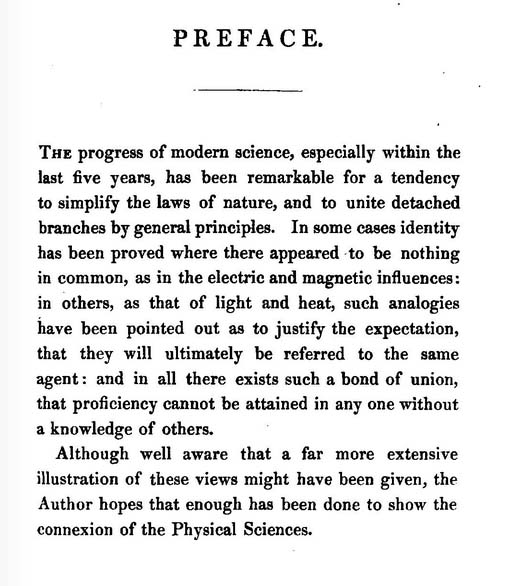Some of you have missed my talks on statistics because of other meetings and a retreat. If you would like to have a look at the presentations, they are now available on.line, together with another couple of talks on LEDs and research on plants’ responses to UV radiation that I gave recently at a conference and at a seminar. You can access them from the SenPEP’s website in the NEWS section.
Category Archives: Readings
Lovelacen kreivitär kirjoitti tietokoneohjelman, ja häntä opasti Mary Somerville (Hessari 7.11.2014)
Today there was an interesting article in Helsingin Sannomat.
http://www.hs.fi/ulkomaat/a1415168967244
The book by Mary Somerville, that is mentioned in the article is in the public domain and available, as many other old and interesting books, through the Internet Archive.
https://archive.org/details/onconnexionphys00somegoog
I was particularly impressed by the preface written in the 1830’s:
 In one of the comments in HS a reader writes that programming is boring… I disagree, just coding may be boring, but designing software and algorithms is anything but boring!
In one of the comments in HS a reader writes that programming is boring… I disagree, just coding may be boring, but designing software and algorithms is anything but boring!
Another reader correctly says that Ada is not a super-computer langauge. In a way it was ment to be when it was designed, but in the sense of being a tool for creating reliable and bug-free software. However, as some other languages designed by a commitee it ended being too complex and inconsistent, and because of this difficult to use as a general purpose language.
Talking plants
This layman’s introduction to plant-plant communication in Quanta on-line magazine is interesting both in relation to the phenomena studied and how science works. Nowadays that plants communicate with each other is widely accepted, but several types of communication are still controversial and not all available evidence is as strong as one would wish. Consequently, it is a very exciting field and time to do research about plant-plant interactions, including communication!
Leaf mimicry in a climber
Check out this paper colleagues, as far as I know it is the first report of leaf mimicry:
http://www.sciencedirect.com/science/article/pii/S0960982214002693
Thinking, Fast and Slow
Daniel Kahneman (2012) Thinking, Fast and Slow. Penguin Books, London.ISBN 978-0-141-03357-0.
I am currently reading this book. I am finding it extremely interesting. Understanding how and why we make choices, is important for everybody. If you are a scientist or aspire to be one in the future, understanding why we accept more readily some experimental results than others, why we are more comfortable with some hypotheses than others, is of fundamental importance, both to guard against bias, and to be able to present our new ideas in a way that will make them more acceptable. Continue reading